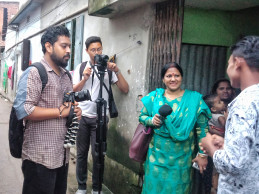German
German Chancellor Scholz Faces Confidence Vote, Early Elections Expected in February
German Chancellor Olaf Scholz is set to face a confidence vote in parliament on Monday, which he is anticipated to lose. This outcome is expected to trigger early elections in February, significantly ahead of the originally scheduled date.
Scholz's three-party coalition government disintegrated on Nov. 6 after he dismissed the finance minister, following a protracted disagreement over economic reforms. In response, the finance minister's pro-business party exited the coalition, leaving the remaining two center-left partners without a parliamentary majority.
Following discussions among party leaders, it was decided that elections will take place on Feb. 23. Germany’s constitution prevents its parliament, the Bundestag, from dissolving itself, requiring a confidence vote to initiate the election process.
Gunmen clash in a Libyan city and fires erupt at a nearby oil refinery, officials say
The Confidence Vote and Next Steps
The Social Democrats, Scholz’s party, hold 207 seats in the Bundestag and are expected to support him, while the Greens, with 117 seats, plan to abstain. Without a majority of 367 votes in the 733-seat chamber, Scholz is likely to lose.
If the vote fails, President Frank-Walter Steinmeier will decide whether to dissolve the Bundestag, with a 21-day timeframe to make his decision. Once dissolved, elections must be held within 60 days. Campaigning for the election has already begun.
Key Candidates and Issues
Scholz has framed the election as a chance for voters to decide on critical national priorities, such as economic investment, job security, pension stability, and Germany's approach to the Ukraine conflict. While Germany has been a major supplier of military aid to Ukraine, Scholz has resisted calls to send long-range cruise missiles.
Friedrich Merz, leader of the center-right Union bloc and Scholz's main challenger, anticipates a tough campaign. Merz emphasizes the need to enhance Germany’s economic competitiveness as a foundation for broader national progress.
Germany warns Assad supporters in Syria against trying to flee there
Vice Chancellor Robert Habeck of the Greens has also entered the race, though his party trails behind in polls. Meanwhile, the far-right Alternative for Germany, polling strongly, has nominated Alice Weidel, though no other parties are willing to form a coalition with them.
A Rare Political Event
Confidence votes are an uncommon occurrence in Germany, which values political stability. This will mark only the sixth such vote in post-World War II history. The last was in 2005 when then-Chancellor Gerhard Schröder called an early election, which narrowly led to Angela Merkel's rise to power.
1 year ago
Getting International German Language Certificates from Bangladesh: A Comprehensive Guide
Embarking on a journey to learn the German language can open up a world of opportunities for higher studies and professional growth. With its rich cultural heritage, strong economy, and influential position in the European Union, Germany has become an attractive destination for students and job seekers. Whether you aspire to pursue a degree at a renowned German university, or secure employment in a German company, mastering German language can pave the way to success.
Bangladeshi students are embracing this success every year. If you also cherish the dream to be one of them, this article is for you. Let's take a look into how to get International German Language Certificates from Bangladesh.
How to Get International German Language Certificates from Bangladesh
Eligibility for Getting International German Language Certificates
The Goethe-Institut offers a range of exams for Bangladeshi students of different age groups, providing opportunities to obtain international German language certificates. Let’s explore the exams and their age eligibility:
Criteria for A1 Level Certificate
Goethe-Zertifikat A1: Fit in Deutsch 1 (FD 1)
Age Eligibility: 10 to 16 years old.Language Skills: Fluency in German at the A1 level of the Common European Framework of Reference for Languages (CEFR) is a prerequisite for candidates.Course Requirement: Completion of 80 to 200 45-minute units of teaching, depending on previous knowledge and learning requirements.
Read more: 10 Most Useful Foreign Languages to Learn in 2022
Goethe-Zertifikat A1: Start Deutsch 1 (SD 1)
Age Eligibility: Minimum 16 years old.Language Skills: Candidates must have German language skills corresponding to the A1 level of the CEFR.Course Requirement: Completion of 80 to 200 45-minute units of teaching, depending on previous knowledge and learning requirements.
Criteria for A2 Level Certificate
Goethe-Zertifikat A2: Fit in Deutsch (FD)
Age Eligibility: Minimum 12 years old.Language Skills: Candidates must have German language skills corresponding to the A2 level of the CEFR.Course Requirement: Completion of 200 to 350 45-minute classes, depending on previous knowledge and learning requirements.
Goethe-Zertifikat A2
Age Eligibility: Minimum 16 years old.Language Skills: Candidates must have German language skills corresponding to the A2 level of the CEFR.Course Requirement: Completion of 200 to 350 45-minute classes, depending on previous knowledge and learning requirements.
Criteria for B1 Level Certificate
Goethe-Zertifikat B1
Age Eligibility: Minimum 12 years old.Language Skills: Candidates must have German language skills corresponding to the B1 level of the CEFR.
Read more: Ausbildung in Germany for Non-EU Students including Bangladesh
Criteria for B2 Level Certificate
Goethe-Zertifikat B2
Age Eligibility: Minimum age of 15 years.Language Skills: Candidates must have German language skills corresponding to the B2 level of the CEFR.
Criteria for C1 Level Certificate
Goethe-Zertifikat C1
Age Eligibility: Minimum 16 years old.Language Skills: Candidates must have German language skills corresponding to the C1 level of the CEFR.Course Requirement: Completion of 800 to 1,000 45-minute units of teaching, depending on previous knowledge and learning requirements.
Criteria for C2 Level Certificate
Goethe-Zertifikat C2: Großes Deutsches Sprachdiplom (GDS)
Age Eligibility: Minimum age of 18 years.Language Skills: Candidates must have German language skills corresponding to C2, the highest level of competence, according to the CEFR.Course Requirement: Completion of at least 1,000 45-minute units of teaching, depending on previous knowledge and learning requirements.
Read more: Higher Study in Germany: Scholarship Opportunities for Bangladeshi and Other International Students
Special Certification Criteria
TestDaF
Age Eligibility: Minimum age of 18 years.Language Skills: The TestDaF determines whether candidates possess the language skills required for studying at a German university or institution of higher education. It corresponds to the B2 and C1 levels of the CEFR.Course Requirement: Candidates should have completed between 700 and 1,000 45-minute units of teaching in German.Goethe-Test PRO
Age Eligibility: Minimum 16 years old.
List of International German Language Certification Exams
If participants take the exam right after the course ends, they get a discount. Students in a course must finish both parts of a level at the Goethe-Institut to be eligible as internal candidates. The fees corresponding to the certification exams for external candidates are given below:
International German Language Certification Exams
Goethe-Zertifikat A1 (SD1)Goethe-Zertifikat A1 (Fit in Deutsch)Goethe-Zertifikat A1 (SD1)Goethe-Zertifikat A2 (Fit in Deutsch)Goethe-Zertifikat A2Goethe-Zertifikat B1Goethe-Zertifikat B1 Jugendliche: Fit in DeutschGoethe-Zertifikat B2Goethe-Zertifikat C1Goethe-Zertifikat C2
Source: Goethe Institut Bangladesh
Read more: Cheapest countries for Bangladeshi students for higher studies
Currently, they are offering certification exams only from A1 to B2 level. The updated information related to the exams is provided in the latest brochure at the time of enrolment. So, please visit their official website or contact them directly to get the current fees for the exams offered by the Goethe-Institut in Bangladesh.
Courses for the International German Language Certificates
At the Goethe-Institut in Bangladesh, there are various extensive, intensive, and blended learning courses available for international German language learning. Every course typically takes participants a maximum of 22 participants and starts in January, March, June, and September. Let’s get to know in detail about the German language courses and certifications.
Extensive and Intensive Course
Extensive Online Live A1.1 / A1.2
This course is conducted online and is suitable for beginners at the A1 level. It consists of 2 sessions per week, with each session lasting 4 teaching units of 45 minutes. In total, the course spans 75 teaching units, providing a comprehensive introduction to the German language.
Extensive Online Live A2.1 / A2.2
Designed for learners at the A2 level, this online course comprises 2 sessions per week, with each session lasting 4 teaching units of 45 minutes. The total duration of the course is 80 teaching units, allowing participants to strengthen their language skills and advance their proficiency at the A2 level.
Intensive Online Live A1
Ideal for learners aiming to rapidly progress through the A1 level, this intensive course takes place online and involves 4 sessions per week, each lasting 3.5 hours. The total duration of the course is 150 teaching units, providing an immersive learning experience and facilitating faster language acquisition.
Read more: Top European Countries Offering Free Education for International Students
Intensive Online Live A2
Similar to the intensive A1 course, this program is intended for learners at the A2 level. It includes 4 sessions per week, with each session lasting 3.5 hours. The course spans a total of 160 teaching units, allowing participants to consolidate their language skills and enhance their proficiency at the A2 level.
Intensive Online Live B1
For learners aspiring to reach the B1 level, this intensive course involves 5 sessions per week, with each session lasting 4 hours and 5 minutes. The course encompasses 190 teaching units and focuses on developing more advanced language skills and cultural understanding.
Intensive Online Live B2
Targeting learners at the B2 level, this intensive course consists of 4 sessions per week, each lasting 4 hours and 5 minutes. It spans a total of 190 teaching units and aims to refine language proficiency, expand vocabulary, and strengthen communication abilities at an upper-intermediate level.
Intensive Hybrid A1
This course offers a combination of classroom presence and Zoom streaming. Participants alternate between attending classes physically and joining online sessions. It involves 4 sessions per week, with each session lasting 3.5 hours. The course spans a total of 150 teaching units, providing flexibility in learning environments.
Intensive Hybrid A2
Similar to the hybrid A1 course, this program is tailored for learners at the A2 level. It includes 4 sessions per week, alternating between classroom and Zoom sessions. Each session lasts 3.5 hours, and the course encompasses a total of 160 teaching units.
Read more: How to Pick a College or University Abroad for Higher Education
Blended Learning Courses
The blended learning course combines classroom sessions and self-study in a 50-50 ratio. Half of the course involves attending classes in a physical setting with a teacher, while the other half focuses on self-paced online learning through the institute's platform.
In the classroom sessions, you interact directly with the teacher and peers, practicing speaking and listening skills and receiving immediate feedback. The online self-study portion provides access to various learning materials, exercises, and resources.
The format is designed to cater to individual learning needs, considering your progress, strengths, and areas for improvement. It spans 10 weeks with 4 sessions per week, lasting 3 hours each, summing up 16 teaching units of 45 minutes. This flexible schedule suits those with other commitments or a preference for a versatile learning environment.
International German Language Certification Course Durations
Table: German course durations
International German Language Certification Course
Duration (Week)
Extensive Online Live (A1.1/A1.2)
10
Extensive Online Live (A2.1/A2.2)
10
Intensive Online Live/Hybrid A1
10
Intensive Online Live/Hybrid A2
10
Intensive Online Live B1
10
Intensive Online Live B2.1/B2.2
9
Exam Preparation (A1/B1)
1
Source: Goethe Institut Bangladesh
These course details are subject to change and announced in the latest course brochure at the time of enrolment. So, for the most accurate and up-to-date details on the course offerings at the Goethe-Institut in Bangladesh, please visit their official website or contact them directly.
Read more: How to Pick a College or University Abroad for Higher Education
In a Nutshell
So far, we have discussed how to get International German language certificates from Bangladesh. The courses and exams of the Goethe-Institut Bangladesh are tailored for different skill levels. The fees of the offered courses and certifications are available on the official website of Goethe-Institut Bangladesh. Learning German while staying in Bangladesh can ease the process of getting a German visa for higher studies, work visa, and other purposes. Let these processes prepare you to embark on the journey to your ultimate goal!
2 years ago
As a stolen silver sleuth, German curator returns heirlooms Jewish families lost in the Holocaust
Matthias Weniger put on a pair of white cloth gloves and carefully lifted a tarnished silver candleholder, looking for a yellowed sticker on the bottom of it.
The candlestick is one of 111 silver objects at the Bavarian National Museum that the Nazis stole from Jews during the Third Reich in 1939. That's when they ordered all German Jews to bring their personal silver objects to pawn shops across the Reich — one of many laws created to humiliate, punish and exclude Jews.
Also Read: Holocaust survivors flee from Ukraine to Germany for safety
What started with anti-Jewish discrimination and persecution in 1933, after the Nazis were voted to power in Germany, led to the murder of 6 million European Jews and others in the Holocaust before World War II ended with Germany's surrender in 1945.
Weniger, who is a curator at the Munich museum and oversees its restitution efforts, has made it his mission to return as many of the silver objects as possible to the descendants of the original owners.
"These silver objects handed in at the pawn shops are often the only material things that remain from an existence wiped out in the Holocaust," Weniger told The Associated Press in an interview last week at the museum's workshop where he displayed some silver items that have yet to be restituted.
"Therefore it's really important to try to find the families and give back the objects to them," he added.
Also Read: Zelenskyy evokes Holocaust as he appeals to Israel for aid
Thousands of the pieces taken from the Jews were melted into around 135 tons of silver, and used to help Germany's war efforts. But several museums ended up with hundreds of silver pieces such as candlesticks used to light candles on the eve of Shabbat, Kiddush cups to bless the wine, silver spoons and cake servers.
Some of the items were returned to Holocaust survivors in the 1950s and 1960s, if they came forward and actively tried to retrieve their stolen possessions. But many former owners were murdered in the Holocaust or, if they succeeded to flee from the Nazis, had ended up in far-flung corners of the globe.
"Two thirds of the last owners did not survive the Shoah," Weniger said.
Also Read: GOP leaders condemn Greene over Holocaust comments
Despite these odds, and with a combination of thorough detective work, dedication and deep knowledge of history, Weniger has so far managed to return about 50 objects to the family members and relatives of the original owners.
He's convinced that he may be able to return almost all remaining objects by the end of this year.
First, he searches for the identity of the original owners. The little yellowed paper stickers on some of the pieces often help his efforts. They were put on the objects by the pawn shops — a testament to Germans' obsessive bureaucracy even in times of dictatorship and war. The numbers on the stickers are also listed on more than 80-year-old documents naming the Jews who had to give away their silver — sometimes beloved heirlooms that had been passed down in families for many generations.
Once Weniger discovers the names of the original owners, he starts looking up Jewish obituary and genealogy databases, in hopes that direct descendants or more distant relatives may have posted their names online.
"And so you get from one generation to the next generation and you end up with telephone books … with LinkedIn, with Facebook, with Instagram or email addresses that correspond to a member of the younger generation of that family," the researcher explained.
In most of the cases, Weniger says he gets lucky and is able to track down the right relatives.
The majority of descendants live in the United States and Israel, but the museum has already or is in the process of also restituting silver pieces to France, the United Kingdom, Australia and Mexico.
Weniger makes a point of personally delivering the pieces to the families. He traveled to the U.S. earlier this year, and last week, he returned 19 pieces to families in Israel.
There, Weniger met up with Hila Gutmann, 53, and her father Benjamin Gutmann, 86, at his home in Kfar Shmaryahu north of Tel Aviv, and gave them a small silver cup.
Weniger had managed to track down the family with the help of the tracing service of Magen David Adom — Israel's version of the International Committee of the Red Cross.
The cup was likely used for Kiddush to bless the wine on the eve of Shabbat — but nobody knows for sure because the original owners, Bavarian cattle dealer Salomon Gutmann and his wife Karolina, who were the grandparents of Benjamin, were murdered by the Nazis in the Treblinka extermination camp.
"It was a mixed feeling for us to get back the cup," Hila Gutmann said. "Because you understand it's the only thing that's left of them."
While the grandparents of Benjamin Gutmann were murdered in the Holocaust, their son Max — Benjamin's father — survived because he fled from the Nazis to the British-mandated territory of Palestine, in what is now Israel.
Despite the pain triggered by the loss and return of the silver cup, the Gutmanns say they're happy to have it back and plan to use it in a ceremony with all their other relatives on Rosh Hashanah, the Jewish New Year, in September.
As for Weniger, the bearer of the cup, the Gutmann's have nothing but praise for him and his work.
"He's really dedicated to it," Hila Gutmann said. "He treats these little objects with so much care — like they are holy."
2 years ago
German parliamentary delegation to visit Bangladesh from February 22-26
A delegation of six German parliament members will pay an official visit to Bangladesh from February 22 to 26 to “foster the strong ties” between the two nations further, said the German Embassy in Dhaka on Sunday.
Renate Kunast, the Chairperson of the German-South Asian Parliamentary Group and a former German Minister, will lead the delegation.
Read more: Envoys impressed with facilities for Rohingyas at Bhasan Char: MoFA
During the visit, the delegation will meet with representatives of the legislative and executive organs of Bangladesh as well as a variety of members of civil society and business circles.
They will discuss with their Bangladeshi counterparts various issues of mutual concern, including the deepening of the 50-year-long bilateral relations, politics, climate change, human rights, trade, migration, development cooperation and women empowerment.
The delegation consists of Renate Künast, MP; Dr André Hahn, MP; Paul Lehrieder, MP; Ria Schröder, MP; Andreas Larem, MP and Dr Malte Kaufmann, MP.
3 years ago
Blatter criticizes Infantino’s plans for World Cup formats
Former FIFA president Sepp Blatter is criticizing successor Gianni Infantino’s plans for a 48-team World Cup and an expanded Club World Cup.
In an interview with German weekly Die Zeit released Wednesday, Blatter said that “what is happening at the moment is an overcommercialization of the game.”
“There are attempts to squeeze more and more out of the lemon — for example with the World Cup finals with 48 teams or now with a Club World Cup that must be viewed as direct competition to the Champions League,” he was quoted as saying. “FIFA is encroaching here on something that is actually none of its business, club soccer.”
The 2026 World Cup in the United States, Mexico and Canada will be the first 48-nation tournament, meeting Infantino’s election pledge of a bigger and more inclusive World Cup going beyond European and South American teams. This year’s tournament in Qatar featured 32 teams.
Earlier this month, Infantino called for a 32-team men’s Club World Cup in 2025.
Read more: 2026 World Cup hosts take diplomatic handover from Qatar
Blatter announced in June 2015 that he would resign early as FIFA president, in the fallout from a sprawling corruption investigation. He has long denied wrongdoing, saying in Wednesday’s interview that “I have never taken money that I didn’t earn — that’s why nothing on me could ever be proven in all the proceedings against me. And that will remain the case.”
Infantino, a fellow Swiss, succeeded Blatter in 2016. Blatter told Die Zeit that he has “no relationship with Infantino” and that the current president “behaved disrespectfully because he has refused any contact with me since his election.” Blatter added that “he only communicates with me via lawyers.”
Blatter claimed that he had repeatedly “tried to control the business,” for example in attempting to limit transfers of talented South American or African players to Europe. An attempt to introduce a pay cap for players also failed. Blatter said “we didn’t manage to protect soccer from economic and political influence.”
Read more: Asia reworks qualifying format for 48-team World Cup in 2026
“I really tried always to serve soccer,” he said. “If in doing so I damaged it, then I am sorry.”
3 years ago
At least 4 killed as train derails in southern German Alps
A train accident in the Alps in southern Germany on Friday left at least four people dead and many more injured, authorities said.
Police said the regional train headed for Munich appeared to have derailed shortly after noon in Burgrain — just outside the resort town of Garmisch-Partenkirchen, from where it had set off. Three of the double-deck carriages overturned at least partly, and people were pulled out of the windows to safety.
Police said on Twitter that four people were killed. They put the number of injured at about 30, 15 of whom were seriously injured and taken to hospitals.
The cause of the derailment was still being investigated. About 140 people were on the train at the time, including numerous students heading home from school for the Whitsun holiday.
German Chancellor Olaf Scholz and Bavaria’s governor, Markus Soeder, expressed shock and sorrow at the disaster.
“Everything is being done to help those who were injured, to whom we wish a speedy recovery,” Scholz said. “Our thoughts are with the relatives.”
Soeder said that students on the train had been looking forward to the holidays.
“Lots of respect and thanks to the rescue services for their swift help,” he tweeted.
READ: Train crushes school student in Dinajpur
The line between Garmisch-Partenkirchen and Oberau, north of the accident site, was closed. The area is near the Austrian border.
Train travel is popular among commuters and tourists alike in Germany, which has a dense network of local and long-distance trains.
While accidents are rare compared to road travel, there have been several fatal rail incidents in recent years.
A train dispatcher was sentenced to 3½ years in prison over a 2016 crash that killed 12 people in Bad Aibling, about 80 kilometers northeast of Garmisch-Partenkirchen. The dispatcher admitted playing a game on his phone shortly before two trains collided on a single-track line.
Earlier this year one man died after the driver of a commuter train south of Munich ran a stop signal, resulting in a collision with another train.
3 years ago
BGMEA hopes for continued support of German govt to RMG industry
A delegation of BGMEA headed by President Faruque Hassan met with Dominik Schnichels, Director General of the Trade Department at the German Federal Ministry of Economics and Climate Change, in Germany on Thursday.
The delegation was accompanied by Ambassador of Bangladesh to Germany Md. Mosharraf Hossain Bhuiyan and Md. Saiful Islam, Commercial Counsellor of Bangladesh Embassy in Berlin, included BGMEA Vice President Miran Ali, Directors Barrister Vidiya Amrit Khan, Neela Hosna Ara and Chair of BGMEA Standing Committee on Foreign Mission Cell Shams Mahmud.
They had discussions about various issues related to Bangladesh’s RMG industry including the current situation, opportunities and strategies to face challenges and move forward.
The issue of LDC graduation, its implications on the economy of Bangladesh and preparedness to continue journey forward in the post-LDC era was also discussed in the meeting, according to BGMEA.
They also talked about the future priorities of the industry to retain its export competitiveness in the global market in the post-LDC era.
READ: BGMEA, Wazir Advisors to conduct study on capturing non-cotton market share
BGMEA President Faruque Hassan also apprised Dominik Schnichels of the RMG industry’s paradigm shift in the area of workplace safety and impressive strides in environmental sustainability.
He also briefed him about how the apparel industry of Bangladesh showed remarkable resilience during the Covid-19 pandemic and turned around from the fallout.
The BGMEA President extended sincere thanks to the German government for the cooperation and support extended to Bangladesh during the difficult time of the pandemic.
He expressed hope that German government’s friendly support for the betterment of Bangladesh RMG industry will continue in the coming days.
3 years ago
German companies urge next government to step up on climate
Dozens of large German companies have urged the country's next government to put in place ambitious policies to meet the goals of the Paris climate accord.
In an open letter Monday, 69 companies said the next government needs to put Germany “on a clear and reliable path to climate neutrality” with a plan for doing so within its first 100 days in office.
The signatories included chemicals giant Bayer, steelmaker ThyssenKrupp and sportswear firm Puma.
Read:Germany will take next step after WHO's approval of Covaxin
The center-left Social Democrats narrowly beat outgoing Chancellor Angela Merkel's conservative Union bloc in last month election. They are due to meet Monday with the environmentalist Greens party and the pro-business Free Democrats to discuss forming a coalition government.
“Climate protection was the decisive topic in the federal election and the parties must place it at the top of their agenda in building the new federal government,” said Michael Otto, board chairman of mail order company Otto Group and president of the Foundation 2 Degrees, which organized the letter.
Earlier this year, Merkel's government adopted a plan to reduce the country’s greenhouse gas emissions to ‘net zero’ by 2045, five years earlier than previously planned.
But official figures show that Germany is slipping behind on its ambitions for cutting greenhouse gases, with 2021 emissions forecast to rebound sharply after a pandemic-related economic slump.
Read:After close vote, Germany on tricky path to form government
The foundation, which says its members have an annual turnover of about 1 trillion euros ($1.16 trillion) and employ more than five million people worldwide, wants the next government to support the rollout of renewable energy and enact a climate-friendly tax reform that includes a strengthened carbon pricing system to prevent investments in power-hungry industries going abroad.
Pointing toward the upcoming U.N. climate summit in Glasgow and Germany's presidency of the Group of Seven major economies next year, the companies said the government must also work to set international standards for the global financial system and climate-neutral products.
“As businesses, we are prepared to fulfil our central role in climate action. We call upon the new German government to make the transformation to climate neutrality the central economic project of the coming legislative period,” they said.
4 years ago
Storm floods German vaccine center, 5 injured by heavy hail
Officials say a vaccination center was flooded and five people were injured by hail the size of tennis balls during heavy storms in southwestern Germany overnight.
All appointments for Thursday at the vaccination center in Tuebingen were canceled after torrential rain late Wednesday.
Police said five people were injured in the nearby town of Reutlingen after they were struck and injured by large hailstones.
Firefighters were out in force across the region pumping water out of flooded basements and removing toppled trees from roads, police said.
The downpour also drenched players and spectators at the Germany-Hungary Euro 2020 match held in Munich on Wednesday evening, forcing some public viewings to be abandoned. The game ended in a tie.
READ: Dhaka wakes up to flooded roads
In the neighboring Czech Republic, a rare tornado hit towns and villages in southeast part of the country, injuring some 150 people and damaging hundreds of houses. Some 200 police officers have been deployed in the region to help the rescue workers.
Earlier in the day, thunderstorms before dawn Thursday left some 100,000 households in central and southern areas of the Czech Republic without electricity, while fallen trees blocked the tracks on some 30 train routes. About 45,000 households were still without power later Thursday.
READ: New areas flooded as Jamuna continues to swell in Sirajganj
4 years ago
German Embassy starts listening stories of climate change effects
Dhaka, Oct 28 (UNB) – The German Embassy in Dhaka has started talking to locals to know their stories about climate change as the effects of climate change are becoming more and more visible.
6 years ago

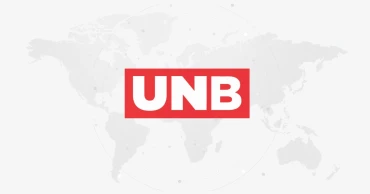
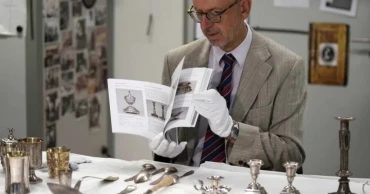
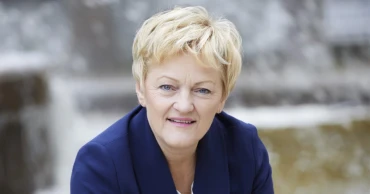
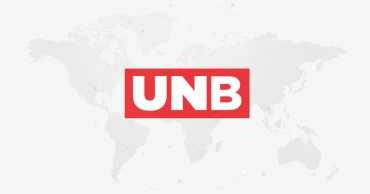


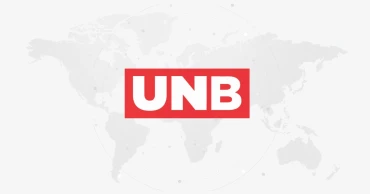
.jpg)
